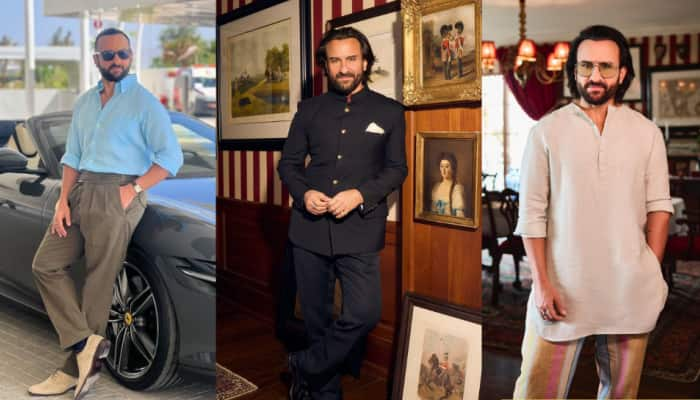Apple at loggerheads with the FBI?
Trending Photos
)
Anything that Apple does, makes news. Any software update, new phone launch, or in fact, even an announcement – anything. However, usually it is positive news about how excited the customers are, or how many queue up hours outside the Apple stores for that first look of the latest gadget. This time, things changed for the negative. There was news floating around about the company’s tiff with the FBI and Apple came across as the loser. This was bound to make headlines.
In February 2016, the FBI filed a case against Apple in a court of law to order it to create a software that could unlock an iPhone, which belonged to a San Bernardino shooter - FBI wanted to recover some data from it. Apple claimed that it helped with whatever information it had, but refused to create a software to unlock the iPhone as that could cause a potential threat to the security of data of its other customers. This standoff continued for several weeks until recently when the FBI claimed that it was able to unlock the phone with help from a third party. As a result, the FBI withdrew the case and wrote a letter that said amongst other things, “We are in this together.” So, did Apple have egg on its face? Who was the winner – the FBI? Who was wrong – the party that refused to create a backdoor entry to an iPhone, or the party that created one nonetheless? On whose side was the common man, especially iPhone users? What would be the repercussions of this standoff? Does it end here?
This case is as exciting as intriguing, and cannot have any answers in black and white. Like in many cases in the court of law, this one too had two sides and the public opinion was divided. However, in my opinion, both the parties come out as the loser. In times when terrorism is on the rise and when terrorists are somehow learning technology faster than it is being upgraded, both the government/ investigative agencies and technology companies like Apple need to work hand in hand. Any differences between them and delays in investigations caused as a result, would only make the terrorists stronger. The case should not have come in the public domain in the first place. The suspect’s accomplices would have got warned that the FBI was trying to recover data from the San Bernardino shooter’s phone. Immediately, they would have countered the effect of any data that was likely to have been recovered like the names, locations, contact details etc of the accomplices. So, even by recovering the data that FBI claims to have recovered, they would not have achieved much except for warning the terrorists that even iPhones can be unlocked and they need to make their data more secure.
The moot question is if Apple was wrong in refusing to accede to the FBI’s demand for unlocking the suspect’s iPhone? The answer is both ‘yes’ and ‘no’. ‘Yes’ because Apple knew that this was a case related to terrorism and the FBI must have needed the data urgently. FBI filed a case because it claimed that Apple did not help it. On the other hand, Apple claimed that it assisted in the investigations and shared whatever data came under the company’s purview. The main point of difference was creating a software to unlock the iPhone. Could not have Apple considered the urgency and significance of the demand, and come up with an alternative solution? What if Apple had created the software that the FBI wanted, but before releasing it, it created an additional security mechanism for its existing users that was available for free and could counter the effect of the new software? This way the FBI could have extracted the data it wanted from the suspect’s phone and the iPhone users would not have been at risk. Not sure if this was possible or not, but given Apple’s army of intelligent engineers, a solution should have been possible. Moreover, in such a case financial considerations could not have been the reason. If the government was ready to spend a huge sum to get the phone unlocked from a third party, as is being reported, it could have financed this software creation as well. In any case, the government has been spending millions of dollars on its counter-terrorism efforts. Once again, all this would have helped only if this was done under wraps.
To be fair to Apple, the company says that it did all that was possible for it keeping the safety of its customers in mind. What if this was actually true? What if the company thought nobody could unlock its current security systems? Did it actually think it was invincible? Can any technology be unsurmountable? At least a technology giant like Apple should have been smarter. Nobody knows what happened behind the scenes, so this conclusion is no more than a conjecture.
No matter what happened, one thing is for sure, there was poor media management by Apple. The case has given the impression to people that Apple did not help the government and that it was not doing enough to fight terrorism. It also gave the impression to some that the company thought that its security systems were unbreakable. Above all, it gave the impression that the government was against it now. Apple did clarify all the doubts, but they were clear only to those who cared to read the fineprint, which is quite uncommon.
All is not gloom as it may seem as the goodwill that Apple has is so strong that many have given the company the benefit of doubt. They have shown faith in what the company said. The company did write an open letter to its customers and answer many of their questions that have won many people in its favour. The letter gives the impression that whatever Apple did was for the good of its customers. The support of other technology companies and whistleblowers like Edward Snowden, have only made its case stronger. The rumour that the government paid a hefty sum for cracking into the iPhone, made Apple customers feel even more secure and to some extent was a good marketing for the company. For people who value security of their data, which most people do, they would now be even more willing to pay that extra sum for an Apple product that can guarantee them some peace of mind.
The overall positive of this case is that the people are more aware now and the encryption debate has been revived. The debate that Edward Snowden had started sometime back, had started to fade away in public memory and this case has brought the issue back to the fore. The need for new regulations, or committees, has been revived worldwide. Terrorists must have gotten the message loud and clear that they cannot hide behind technology and the government is not helpless.
To keep the momentum building, the governments and the technology companies worldwide will have to join hands. They both must have understood it by now that each is incomplete without the other. If there are any differences amongst them, they would be best served in private. The FBI may have won the case this time, but has lost a lot of public support. On the other hand, Apple too has come out as weak in not being supportive to the cause of counter-terrorism.
When you are supported by millions all over the world, you can either get complacent, or try to feed off the goodwill. This holds very true for Apple even today. So, instead of getting complacent in future, the company should get its point across to the people more aggressively. In cases like these where the other technology companies were by its side, it would have helped to take them along in getting its message across to the people. People like Snowden, who are considered heroic by many, were supporting Apple’s stand, yet the company didn’t make the best use of it. Social media trends should have been in favour of Apple’s stand rather than showing it as a loser in the case. Now, the company would be best served if it is seen as pushing for new regulations and committees. Basically, the company needs to get the message across that not only does it care for its customers, but also is united in the fight against terrorism. As they say, a business has only two functions – marketing and innovation. Here is an opportunity for Apple for both.
(Shobhika Puri is a freelance writer.)
Stay informed on all the latest news, real-time breaking news updates, and follow all the important headlines in india news and world News on Zee News.
Live Tv







)
)
)
)
)
)
)
)
)
)
